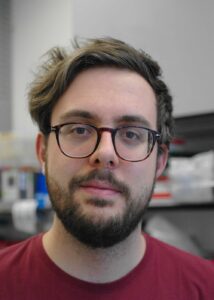
Simon Berger
University of Zurich
Switzerland
EMBO Practical Course
Funded by EMBO for excellence in the life sciences
C. elegans is a widely used model organism in genomics, cell biology, neurobiology, and evolution, known for its fully sequenced genome, completely mapped cell lineage, and powerful experimental tools like advanced genetics and imaging. Continuous advancements in techniques, such as genome engineering and high-resolution imaging, further enhance its utility for various disciplines. However, cutting-edge methods are often inaccessible even in established labs.
This course provides essential training for early-career researchers entering these dynamic fields and specialists seeking to expand their expertise. Through hands-on practicals, participants gain valuable experience in conducting experiments, while lectures and discussions with leading faculty highlight how these technologies address key scientific questions.
The topics of the lectures include genome organisation, cell division, development, tissue function, physiology, evolution, and environmental interactions. Practical sessions range from basic techniques, including handling, staging, and maintenance, to advanced and specialised techniques in genome editing, sample preparation, imaging, and image analysis, incorporating new methods like microfluidics-based high-throughput microscopy and analysis techniques, including AI-driven segmentation and spot detection. This course offers a stimulating learning experience, empowering researchers to fully leverage C. elegans in advancing their scientific work.
This practical course is aimed at early career scientists, mostly postdocs and advanced graduate students with an interest in C. elegans. You are welcome to join if you have little or no prior experience in working with C. elegans and want to use this model organism to advance your research, but also if you are an experienced C. elegans researcher who wants to expand their tool set. The course will cover state-of-the-art techniques that are – or will become – essential for a broad range of research topics.
“This course is fantastic! If you want to start working with C. elegans, this course will give youan amazing overview of what you will be able to do with this elegant worm. The trainers andspeakers are extremely motivated and helpful. You will be picked up at whatever level you maycurrently be and they do their best to teach the key steps of all the important techniques. The other attendees were also super nice and helpful and I hope that the contacts gained from this course will develop into long-lasting collaborators and friends. I can absolutely recommend this course!” — Martin Vogel, TUD Dresden University of Technology, Germany
“This course was everything I had hoped and more. I have come away from it feeling like an allround better scientist, with new techniques, new ideas, and new friends! The organisers created a wonderful environment to learn and network.” — Charlie Collingham, University of Reading, UK

University of Zurich
Switzerland
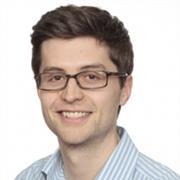
Imperial College London
UK
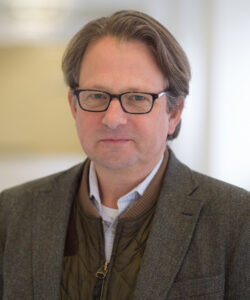
Albert Einstein College of Medicine
USA

Institut Pasteur
France
University of Leeds
UK
(Remote)

CNRS Délégation Rhône-Auvergne
France
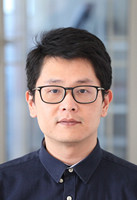
Chinese Academy of Sciences
China
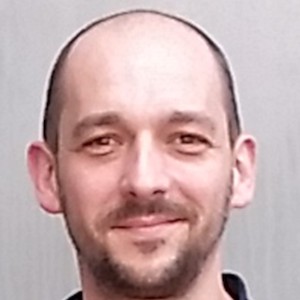
Institut Jaques Monod
France
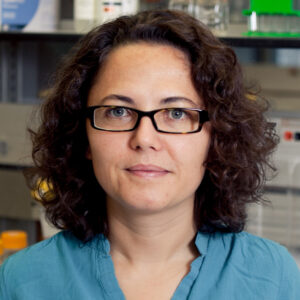
New York University
USA
(Remote)
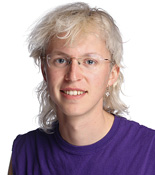
EMBL Heidelberg
Germany
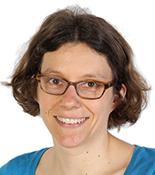
EMBL Heidelberg
Germany
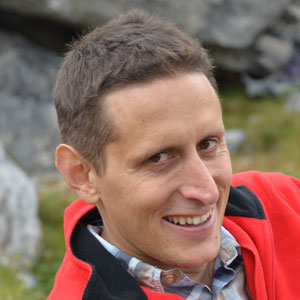
University of Bern
Switzerland
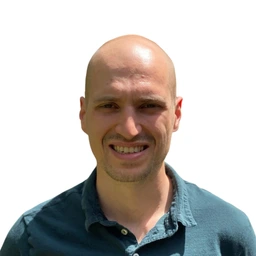
Helmholtz München
Germany
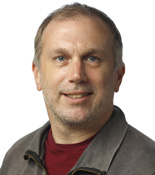
Max Planck Institute for Biology Tübingen
Germany
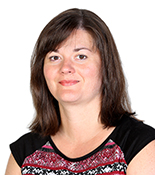
EMBL Heidelberg
Germany
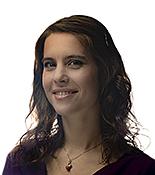
EMBL Heidelberg, Germany
ULB University, Belgium
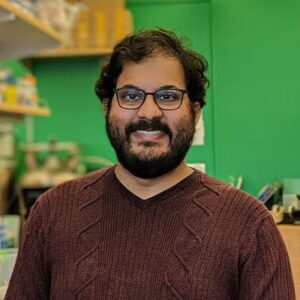
University of California, Los Angeles
USA
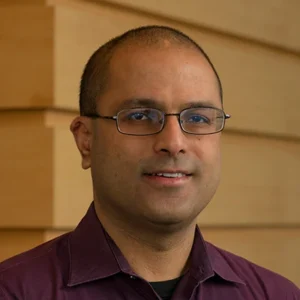
HHMI
USA
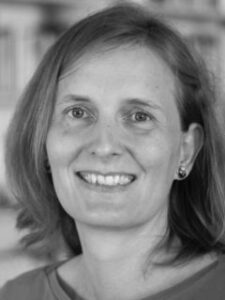
Friedrich-Alexander-Universität
Germany

University of Zurich
Switzerland

EMBL Heidelberg
Germany

EMBL Heidelberg, Germany /
ULB University, Belgium

University of California, Los Angeles
USA
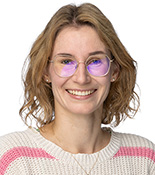
Scientific Training Officer
EMBL Heidelberg
Germany
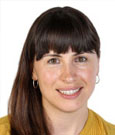
Course and Conference Manager
EMBL Heidelberg
Germany
Are you on social media? Post using #EMBOCelegans and don’t forget to tag @EMBLEvents.
| Time (Europe/Berlin) | Speaker | Location |
|---|---|---|
| 15:30 – 16:30 | Onboarding session (access to eCampus learning platform), introduction on Zoom – introduction to the course – materials to be used and expectations from the participants – overview of the tools used during the course | EMBL eCampus |
| Time (Europe/Berlin) | Speaker | Location |
|---|---|---|
| 08:40 – 08:50 | Bus from hotel to EMBL ATC Entrance | ISG Hotel bus stop |
| 08:50 – 09:00 | Registration | |
| 09:00 – 09:30 | Health and safety briefing | Courtyard Room A & B |
| 09:30 – 12:30 | Optional Bootcamp A or B Option A: Basic C. elegans methodology: maintenance, propagation, decontamination Trainers: Simone Köhler – EMBL Heidelberg, Germany Georgia Rapti – EMBL Heidelberg, Germany Cristina Piñeiro López – EMBL Heidelberg, Germany Option B: Basic principles for image analysis Trainer: Pavak Shah – University of California, Los Angeles, USA | Training Lab Computer Training Lab Courtyard Room |
| 12:30 – 13:30 | Lunch | EMBL Canteen |
| 13:30 – 14:00 | World of molecular biology exhibition | Imaging Centre |
| 14:00 – 14:15 | Welcome Simone Köhler – EMBL Heidelberg, Germany Georgia Rapti – EMBL Heidelberg, Germany | Courtyard Room A & B |
| 14:15 – 14:45 | Flash talks (1 min per participant) | Courtyard Room A & B |
| 14:45 – 15:15 | Challenges & expectations for the course (all participants) | Courtyard Room A & B |
| 15:15 – 15:45 | Coffee break | Courtyard Room A & B |
| 15:45 – 16:00 | Course overview Simone Köhler – EMBL Heidelberg, Germany Georgia Rapti – EMBL Heidelberg, Germany | Courtyard Room A & B |
| 16:00 – 16:40 | Introduction to useful web resources and databases for C.elegans research Simone Köhler – EMBL Heidelberg, Germany Georgia Rapti – EMBL Heidelberg, Germany | Courtyard Room A & B |
| 16:40 – 17:10 | Introduction on responsible conduct of research Simone Köhler – EMBL Heidelberg, Germany Georgia Rapti – EMBL Heidelberg, Germany | Courtyard Room A & B |
| 16:40 – 17:00 | Coffee break | Courtyard Room A & B |
| 17:00 – 17:30 | Lecture: Evolutionary origins of unconventional DNA transmission Marie Delattre -CNRS Délégation Rhône-Auvergne, France | Courtyard Room A & B |
| 17:30 – 17:45 | Q&A after the lecture | Courtyard Room A & B |
| 17:45 – 19:00 | Dinner | EMBL Canteen |
| 19:00 | Bus to ISG Hotel | ATC Entrance |
| Time (Europe/Berlin) | Speaker | Location |
|---|---|---|
| 08:40 – 08:50 | Bus to EMBL ATC Entrance | ISG Hotel bus stop |
| 08:55 – 09:00 | Overview of the day | Courtyard Room A & B |
| 09:00 – 09:30 | Lecture: Cellular division & reproduction Julien Dumont – Institut Jaques Monod, France | Courtyard Room A & B |
| 09:30 – 09:45 | Q&A after the lecture | Courtyard Room A & B |
| 09:45 – 10:15 | Lecture: Molecular dynamics of cell division Esther Zanin – Friedrich-Alexander-Universität, Germany | Courtyard Room A & B |
| 10:15 – 10:30 | Q&A after the lecture | Courtyard Room A & B |
| 10:30 – 11:00 | Coffee break | Courtyard Room Foyer |
| 11:00 – 11:15 | Health and safety briefing | Courtyard Room A & B |
| 11:15 – 13:00 | Practical session 1: Methods of genome manipulation – Part 1: students rotate through 1 of 4 stations 1:45 h per station; 4 students per station Station 1: Screening RNAi / mutagenesis Trainer: Georgia Rapti – EMBL Heidelberg, Germany Station 2: Dissection / In situ sample preparation Trainer: Simone Köhler – EMBL Heidelberg, Germany Cristina Piñeiro López – EMBL Heidelberg, Germany Station 3: Animal/embryo staging & mounting Trainer: Pavak Shah – University of California, Los Angeles, USA Station 4: Design for CRISPRs Trainer: Alex Paix – Max Planck Institute for Biology Tübingen, Germany with flexible breaks | Station 1-3: Training Labs Station 4: Flex labs |
| 13:00 – 14:00 | Lunch break | EMBL Canteen |
| 14:00 – 14:15 | Group Photo | TBC |
| 14:15 – 18:15 | Practical session 1: Methods of genome manipulation – Part 2&3: students rotate through 2 of 4 stations 1:45 h per station; 4 students per station; 30 min min break between station Station 1: Screening RNAi / mutagenesis Trainer: Georgia Rapti – EMBL Heidelberg, Germany Station 2: Dissection / In situ sample preparation Trainer: Simone Köhler – EMBL Heidelberg, Germany Cristina Piñeiro López – EMBL Heidelberg, Germany Station 3: Animal/embryo staging & mounting Trainer: Pavak Shah – University of California, Los Angeles, USA Station 4: Design for CRISPRs Trainer: Alex Paix – Max Planck Institute for Biology Tübingen, Germany | Station 1-3: Training Labs Station 4: Flex labs |
| 18:15 – 19:15 | Dinner with guided discussion on “Choosing a Postdoc” and “Grant writing” | EMBL Canteen |
| 19:15 | Bus to ISG Hotel | ATC Entrance |
| Time (Europe/Berlin) | Speaker | Location |
|---|---|---|
| 08:40 – 08:50 | Bus to EMBL ATC Entrance | ISG Hotel bus stop |
| 08:55 – 09:00 | Overview of the day | Courtyard Room A & B |
| 09:00 – 09:30 | Lecture: Nuclear Organization & Cell Fate Peter Meister – University of Bern, Switzerland | Courtyard Room A & B |
| 09:30 – 09:45 | Q&A after the lecture | Courtyard Room A & B |
| 09:45 – 10:15 | Coffee break | Courtyard Room Foyer |
| 10:15 – 10:45 | Lecture: Tracking evolution of early patterning Pavak Shah – University of California, Los Angeles, USA | Courtyard Room A & B |
| 10:45 – 11:00 | Q&A after the lecture | Courtyard Room A & B |
| 11:00 – 12:45 | Practical session 1: Methods of genome manipulation – Part 4: students rotate through 1 of 4 stations 1:45 h per station; 4 students per station Station 1: Screening RNAi / mutagenesis Trainer: Georgia Rapti – EMBL Heidelberg, Germany Station 2: Dissection / In situ sample preparation Trainer: Simone Köhler – EMBL Heidelberg, Germany Cristina Piñeiro López – EMBL Heidelberg, Germany Station 3: Animal/embryo staging & mounting Trainer: Pavak Shah – University of California, Los Angeles, USA Station 4: Design for CRISPRs Trainer: Alex Paix – Max Planck Institute for Biology Tübingen, Germany with flexible breaks | Station 1-3: Training Labs Station 4: Flexs labs |
| 12:45 – 13:45 | Lunch break | EMBL Canteen |
| 13:45 – 16:15 | Practical session 2: Imaging cells and molecules – Part 1: 1 of 4 stations Students rotate in 4 independent stations of 2.5 h each, all stations provided for 2 days; 4 students per station) Station 1: Live imaging and Lineaging Trainer: Georgia Rapti – EMBL Heidelberg, Germany Pavak Shah – University of California, Los Angeles, USA Station 2: High Resolution Microscopy Trainer: Simone Köhler – EMBL Heidelberg, Germany Station 3: Injection Trainer: Cristina Piñeiro López – EMBL Heidelberg, Germany Station 4: High throughput imaging Trainer: Simon Berger – University of Zürich, Switzerland with flexible breaks | Station 1: Training Lab / ALMF Station 2-3: Simone’s Lab Station 4: Training Lab / ALMF |
| 16:15 – 16:45 | Coffee break | Courtyard Room Foyer |
| 16:45 – 17:30 | Poster Flash Talks (odd numbers) – 5 min/presenter | Courtyard Room A&B |
| 17:30 – 18:30 | Poster session 1 (odd numbers) – 60 min | Flex Lab B |
| 18:30 – 19:30 | Pizza dinner and networking | ATC Rooftop Lounge |
| 19:30 | Bus to ISG Hotel | ATC Entrance |
| Time (Europe/Berlin) | Speaker | Location |
|---|---|---|
| 08:40 – 08:55 | Bus to EMBL ATC Entrance | ISG Hotel bus stop |
| 08:55 – 09:00 | Overview of the day | Courtyard Room A & B |
| 09:00 – 09:30 | Lecture: System biology of early embryogenesis Zhuo Du – Chinese Academy of Sciences, China | Courtyard Room A & B |
| 09:30 – 09:45 | Q&A after the lecture | Courtyard Room A & B |
| 09:45 – 10:00 | Coffee break | Courtyard Room Foyer |
| 10:00 – 12:30 | Practical session 2: Imaging cells and molecules – Part 2: 1 of 4 stations. Students rotate in 4 independent stations of 2.5 h each, all stations provided for 2 days, 4 students per station) Station 1: Live imaging and Lineaging Trainer: Georgia Rapti – EMBL Heidelberg, Germany Pavak Shah – University of California, Los Angeles, USA Station 2: High Resolution Microscopy Trainer: Simone Köhler – EMBL Heidelberg, Germany Station 3: Injection Trainer: Cristina Piñeiro López – EMBL Heidelberg, Germany Station 4: High throughput imaging Trainer: Simon Berger – University of Zürich, Switzerland with flexible breaks | Station 1: Training Lab / ALMF Station 2-3: Simone’s Lab Station 4: Training Lab / ALMF |
| 12:30 – 13:30 | Lunch break | EMBL Canteen |
| 13:30 – 14:00 | Lecture: Chromosome structure & transcription Sevinc Ercan – New York University, USA (Remote speaker) | Courtyard Room A & B |
| 14:00 – 14:15 | Q&A after the lecture | Courtyard Room A & B |
| 14:15 – 16:45 | Practical session 2: Imaging cells and molecules – Part 3: 1 of 4 stations. Students rotate in 4 independent stations of 2.5 h each, all stations provided for 2 days, 4 students per station) Station 1: Live imaging and Lineaging Trainer: Georgia Rapti – EMBL Heidelberg, Germany Pavak Shah – University of California, Los Angeles, USA Station 2: High Resolution Microscopy Trainer: Simone Köhler – EMBL Heidelberg, Germany Station 3: Injection Trainer: Cristina Piñeiro López – EMBL Heidelberg, Germany Station 4: High throughput imaging Trainer: Simon Berger – University of Zürich with flexible breaks | Station 1: Training Lab / ALMF Station 2-3: Simone’s Lab Station 4: Training Lab / ALMF |
| 16:45 – 17:15 | Coffee break | Courtyard Room Foyer |
| 17:15 – 18:00 | Poster Flash Talks (even numbers) – 5 min/presenter | Courtyard Room A & B |
| 18:00 – 19:00 | Poster session 2 (even numbers) – 60 min | Flex Lab B |
| 19:00 – 20:00 | Dinner with networking | EMBL Canteen |
| 20:00 | Bus to ISG Hotel | ATC Entrance |
| Time (Europe/Berlin) | Speaker | Location |
|---|---|---|
| 08:40 – 08:50 | Bus to EMBL ATC Entrance | ISG Hotel bus stop |
| 08:55 – 09:00 | Overview of the day | Courtyard Room A & B |
| 09:00 – 09:30 | Lecture: Dendrine patterning & neuronal rewiring Hannes Bulow, Albert Einstein College of Medicine, USA | Courtyard Room A & B |
| 09:30 – 09:45 | Q&A after the lecture | Courtyard Room A & B |
| 09:45 – 10:15 | Lecture: Visualizing meiotic chromosomes Simone Köhler – EMBL Heidelberg, Germany | Courtyard Room A & B |
| 10:15 – 10:30 | Q&A after the lecture | Courtyard Room A & B |
| 10:30 – 11:00 | Coffee break | Courtyard Room Foyer |
| 11:00 – 11:30 | Lecture: Neural network maps & activity Netta Cohen – University of Leeds, UK (Remote speaker) | Courtyard Room A & B |
| 11:30 – 11:45 | Q&A after the lecture | Courtyard Room A & B |
| 11:45 – 12:45 | Lunch break | EMBL Canteen |
| 12:45 – 15:15 | Practical session 2: Imaging cells and molecules – Part 4: 1 of 4 stations. Students rotate in 4 independent stations of 2.5 h each, all stations provided for 2 days, 4 students per station) Station 1: Live imaging and Lineaging Trainer: Georgia Rapti – EMBL Heidelberg, Germany Pavak Shah – University of California, Los Angeles, USA Station 2: High Resolution Microscopy Trainer: Simone Köhler – EMBL Heidelberg, Germany Station 3: Injection Trainer: Cristina Piñeiro López – EMBL Heidelberg, Germany Station 4: High throughput imaging Trainer: Simon Berger – University of Zürich, Switzerland with flexible breaks | Station 1: Training Lab / ALMF Station 2-3: Simone’s Lab Station 4: Training Lab / ALMF |
| 15:15 – 15:45 | Coffee break | Courtyard Room Foyer |
| 15:45 – 16:15 | Lecture: Advanced approaches of fluorescent imaging Hari Shroff – Howard Hughes Medical Institute, USA (Remote speaker) | Courtyard Room A & B |
| 16:15 – 16:30 | Q&A after the lecture | Courtyard Room A & B |
| 16:30 – 16:45 | Coffee break | Courtyard Room Foyer |
| 16:45 – 19:15 | Practical session 3: Advanced image analysis tools (Part 1: Students select 1 station from 5 options, each station has 2.5 hour-duration; up to 4 students per station) Station 1: Segmentation and spot detection Trainer: Francesco Padovani – Helmholtz Institute Munich, Germany Station 2: 3D rendering of microscopy data with Blender Trainer: Oane Gros – EMBL Heidelberg, Germany Station 3: Lineage tracing & analysis Trainer: Pavak Shah – University of California, Los Angeles, USA Station 4: High Throughput Analysis Trainer: Simon Berger – University of Zurich, Switzerland Station 5: Locomotory Analysis Trainer: Andre Brown – Imperial College London, UK with flexible breaks | Station 1: CTL Station 2: Flex Lab A (DTEN) Station 3: Courtyard room Station 4: Any meeting room Station 5: Flex Lab B |
| 19:15 – 20:30 | Tapas dinner with networking | ATC Rooftop Lounge |
| 20:30 | Bus to ISG Hotel | ATC Entrance |
| Time (Europe/Berlin) | Speaker | Location |
|---|---|---|
| 08:40 – 08:55 | Bus to EMBL ATC Entrance | ISG Hotel bus stop |
| 08:55 – 09:00 | Overview of the day | Courtyard Room A & B |
| 09:00 – 09:30 | Lecture: Mechanisms of neural circuit architecture Georgia Rapti – EMBL Heidelberg, Germany | Courtyard Room A & B |
| 09:30 – 09:45 | Q&A after the lecture | Courtyard Room Foyer |
| 09:45 – 10:15 | Coffee break | Courtyard Room Foyer |
| 10:15 – 12:45 | Practical session 3: Advanced image analysis tools (Part 2: Students select 1 station from 5 options, each station has 2.5 hour-duration; up to 4 students per station) Station 1: Segmentation and spot detection Trainer: Francesco Padovani – Helmholtz Institute Munich, Germany Station 2: 3D rendering of microscopy data with Blender Trainer: Oane Gros – EMBL Heidelberg, Germany Station 3: Lineage tracing & analysis Trainer: Pavak Shah – University of California, Los Angeles, USA Station 4: High Throughput Analysis Trainer: Simon Berger – University of Zurich, Switzerland Station 5: Locomotory Analysis Trainer: Andre Brown – Imperial College London, UK with flexible breaks | Station 1: CTL Station 2: Flex Lab A (DTEN) Station 3: Courtyard room Station 4: Any meeting room Station 5: Flex Lab B |
| 12:45 – 13:45 | Lunch | |
| 13:45 – 14:15 | Lecture: High-throughput & quantitative analysis of behavior Andre Brown – Imperial College London, UK | Courtyard Room A & B |
| 14:15 – 14:30 | Q&A after the lecture | Courtyard Room Foyer |
| 14:30 – 17:00 | Practical session 3: Advanced image analysis tools (Part 3: Students select 1 station from 5 options, each station has 2.5 hour-duration; up to 4 students per station) Station 1: Segmentation and spot detection Trainer: Francesco Padovani – Helmholtz Institute Munich, Germany Station 2: 3D rendering of microscopy data with Blender Trainer: Oane Gros – EMBL Heidelberg, Germany Station 3: Lineage tracing & analysis Trainer: Pavak Shah – University of California, Los Angeles, USA Station 4: High Throughput Analysis Trainer: Simon Berger – University of Zurich, Switzerland Station 5: Locomotory Analysis Trainer: Andre Brown – Imperial College London, UK with flexible breaks | Station 1: CTL Station 2: Flex Lab A (DTEN) Station 3: Courtyard room Station 4: Any meeting room Station 5: Flex Lab B |
| 17:15 – 18:00 | Bus to downtown (with a short stop at ISG hotel) | ATC Entrance |
| 18:00 – 19:00 | Free time | |
| 19:00 – 21:00 | Dinner downtown |
| Time (Europe/Berlin) | Speaker | Location |
|---|---|---|
| 10:00 – 10:05 | Overview of the day | TBC |
| 10:05 – 10:35 | Lecture: Mechanisms of epigenetic inheritance Germano Cecere -Institut Pasteur, France | TBC |
| 10:35 – 10:50 | Q&A after the lecture | TBC |
| 10:50 – 11:20 | Coffee break | TBC |
| 11:20 – 11:50 | Lecture: Microfluidics-base high-throughputscreening of development Simon Berger – University of Zürich, Switzerland | TBC |
| 11:50 – 12:05 | Q&A after the lecture | TBC |
| 12:05 – 12:35 | Feedback session and closing remarks | TBC |
| 12:45 | Bus from ISG hotel or EMBL to Heidelberg train station |
The course is limited to 16 participants. For selection purposes, please note that your application will not be considered without a letter of motivation.
Your registration for the event includes:
For this EMBO course, the fees include accommodation and transportation to and from the ISG Hotel to the venue
| Academia | €500 |
| PhD Student | €500 |
| Industry | €1100 |
The registration fee should be paid only after acceptance to the course. The results will be announced approximately 2-3 weeks after the application deadline.
If you are no longer able to take part in the course, please inform your course contact responsible for this event. Your registration and the submitted motivation letter will be deleted.
Please also check our Terms and Conditions for the cancellation policy.
After you have logged in and successfully registered, you will receive an email asking you to submit your motivation letter. Click on the link provided and enter your motivation letter in the text box provided. Alternatively you can submit your motivation letter by clicking on the link on the confirmation page directly after registering.
Instructions
Please note:
For detailed instructions, please watch our video on how to submit a course motivation letter.
For further information about registration and motivation letter submission please refer to the FAQ page.
Limited financial assistance is provided by the EMBL Advanced Training Centre Corporate Partnership Programme and EMBO in the form of travel grants and childcare grants.
Your place in the meeting is only confirmed by paying the registration fee, which is mandatory even when receiving a fee waiver.
The travel grant will cover the cost of travel (airfare, train, bus, taxi, and visa) and/or registration fees and is provided up to specified caps which are normally as follows:
– up to €500 for any participant travelling to an EMBO Practical Course.
– up to €1000 for any participant working in Chile, India, Singapore or Taiwan travelling to an EMBO Practical Course.
The organisers may reduce the grant cap to accommodate more participants. Recipients will be notified of their travel cap amount when they are informed of the outcome of their application. Original receipts must be provided with your signature for all costs incurred within two months of completion of travel. Scanned copies cannot be accepted.
There is the possibility to apply for a childcare grant to offset child care costs incurred by participants, speakers, trainers and organisers when attending a course. Eligible costs include (but are not limited to) fees for a babysitter or child-care facility and travel costs for a caregiver. Please note that priority will be given to early-stage researchers. There is a limited amount of funding available for the childcare grants and funds will be distributed amongst eligible applicants.
Applies to selected courses only. Availability will be indicated during the abstract or motivation letter submission process.
This grant covers costs related to your attendance to the course (registration, travel and accommodation costs). The grant is restricted to PhD students and postdocs who conduct basic biomedical research.
Whether you are eligible to apply for a travel grant, depends on when you received your university entrance qualification (e.g. Abitur, A-Levels, High School Diploma, Final State Examination):
– for PhD and MD students, as well as graduates, the university entrance qualification must not have been obtained more than 11 years ago at the time of the envisaged course
– for postdocs, the university entrance qualification must not have been obtained more than 13 years ago at the time of the envisaged course
For EMBO Practical Course participants with accessibility needs, there is the possibility to apply for an accessibility grant to offset costs incurred by participants or speakers when participating at a course. Eligible costs include costs incurred for equipment or adaptations to the course environment, or travel costs for an event companion to assist the participant or speaker during the course where necessary. While we do our best to accommodate needs, please note that extensive changes to the course environment might not be possible. Priority will be given to early-stage researchers.
A maximum amount of €500 can be awarded per participant applying for an EMBO accessibility grant. In order to apply for this grant for EMBO Courses, you must be registered by the application deadline.
If you are attending virtually, you can apply for financial assistance in the submission portal by the abstract deadline. Read the instructions on how to apply for financial assistance. Only submissions for financial assistance will be accepted. Presentation abstracts cannot be submitted here and will be declined.
In your application you will be asked to summarise your current work, answer questions regarding why your lab cannot fund your attendance, and how your attendance will make a difference to your career. Application for financial support will not affect the outcome of your registration application.
*For some events, applications for Childcare Grants will still be done by email. Information about the grant will be sent out shortly after the abstract/motivation letter deadline. Please contact the event Conference Officer if you have any questions.
A selection process will take place with the results announced by email to all applicants / submitters. We aim to announce 3 weeks (21 days) after the abstract submission deadline but delays may occur.”
Selection results do not impact your admission to the meeting. Selection for registration fee waivers and travel grants is based on scientific merit, your current work or study location, the reasons for needing financial support, and the impact this event will have on your career.
Childcare grants will be allocated in the same timeframe (6-8 weeks before the event start date). Please note that priority will be given to early-stage researchers.
Check out this list of external funding opportunities.
For further information about financial assistance please refer to the FAQ page.
We can send you a registration confirmation to support your visa procedure (not an official invitation letter). Please contact the Conference Officer responsible for your event. For more information, please see here.
If you are travelling to Heidelberg via aeroplane, train, car or long-distance bus, you can find useful information here.
Accommodation in twin rooms, including breakfast is included in the registration fee. Accommodation will be booked for the selected participants at the ISG Hotel for the default dates of Sunday 22 March to Sunday 29 March (7 nights).
In case you would like to have a single room, please let the hotel know and please note that you will be required to pay an additional cost of 32€ per night (availability of single rooms may be limited). This should be paid by you directly to the ISG Hotel during your stay.
We recommend that all course participants stay at the ISG Hotel for the course.
Shuttle buses will go from the ISG Hotel to EMBL and back, mornings and evenings. A bus schedule and location of the bus stops will be made available prior to the meeting.
In addition to the shuttle busses, there is also the public bus 28 that serves the EMBL campus and taxis can be easily booked at any time. For more information, see here.
You may also walk from the ISG Hotel to EMBL (takes up to 30 minutes)
Map to walk from ISG Hotel to EMBL
Address: EMBL Heidelberg, Meyerhofstraße 1, 69117 Heidelberg, Germany
For more information about accommodation and travel, please refer to the FAQ page.
Here you will find useful information for when you are onsite at the event.
All meals and coffee breaks are included in the registration fee. Our catering staff will prepare a variety of vegetarian meals, meat and fish dishes, soups, pasta, fresh fruit and vegetables, as well as a variety of desserts.
Please wear your badge at all times when serving yourself.
No food or drinks are allowed in the auditorium.
Wi-Fi is available on campus using the EMBL-Events network and the event specific password, which will be provided on site. The eduroam network (secure, worldwide roaming access service developed for the international research and education community) is also available.
During the conference, an EMBL Photographer may be taking photos. If you would not like to appear in these, please inform the photographer or a member of the Course and Conference Office.
There are lockers available next to the stairs leading down into the Auditorium. You will find some of those equipped with sockets to charge your smartphone/tablet etc.
In most places the electricity is 220 volts AC (50 cycles). An adaptor and a plug that fits the German socket may be needed for your appliances/laptop (i.e. American, Japanese, etc.). A USB charging station for electronic devices is available at the registration desk.
We can help to print your boarding pass/train ticket. Please send it to events@embl.de and collect your print-outs at the registration desk.
There are lockers available on-site to store your luggage, which require a 2 EURO coin to operate. There is another luggage room on level E0, which is free to use but remains unlocked during the conference.
‘’Lost and Found’’ items are kept at the registration desk until the end of the conference.
If you are interested in purchasing EMBL merchandise (products presented in the glass display in the registration area), please email the EMBL shop to place an order.
Kindly note the EMBL shop is only open upon request and all purchases must be made in cash (Euros only).
There is a nursing room available in the ATC Rooftop Lounge on level A29.
There is a room for prayer, yoga, and meditation, located on level E0 behind the Auditorium. Please be respectful of others using the room.
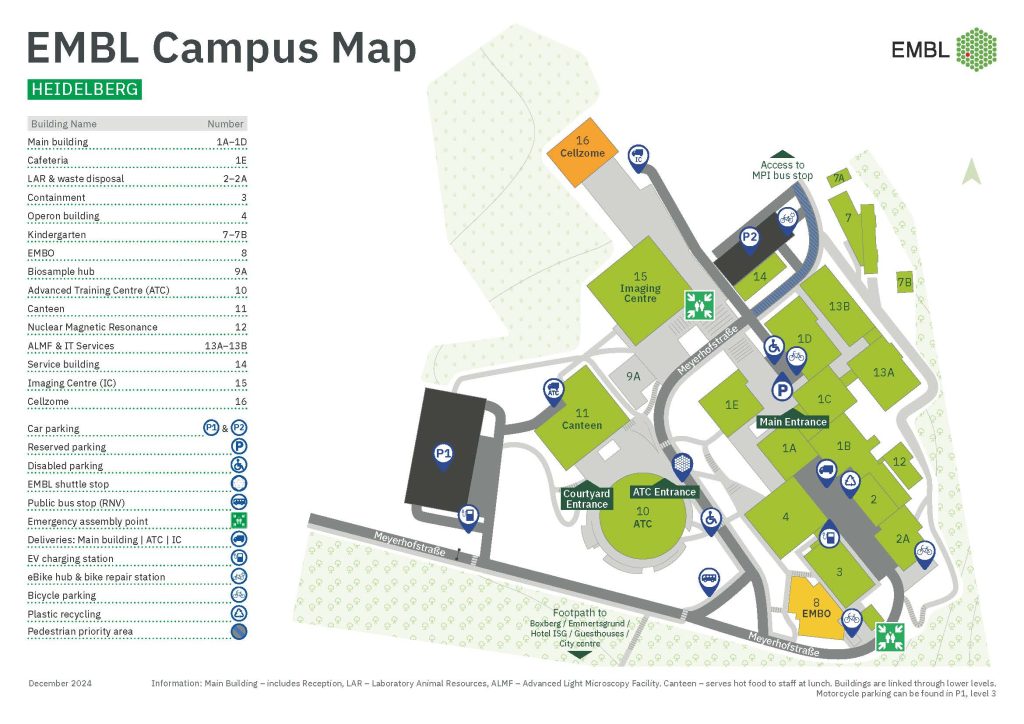
Please take a moment to read our health and safety policy.
If first aid is required
In case of fire
Beyond first aid
The Heidelberg University Hospital or ‘Universitätsklinikum‘ has a 24 hour accident and emergency facility and is at ‘Im Neuenheimer Feld 672’. It is a 8km or a 20 minute taxi ride away from EMBL. In a medical emergency, the ambulance service generally transports patients to this hospital.
Please remember to bring your own medication, if needed, to the conference. Note that the next pharmacy is a 4-minute drive from the EMBL, but for many medications you will be required to see a doctor to get a prescription.
Ensure in advance that your medical insurance will cover you during your visit in the event that you do need to see a doctor while in Heidelberg.
The EMBL course and conference office team are able to advise you on where to turn for emergency or non-emergency medical treatment in Heidelberg and can assist you in making appointments and / or arranging transport to get to the pharmacy or a doctor of your choice if necessary. Please note, we are not however permitted to personally accompany you off-campus.
A variety of activities in Heidelberg can be found on the website of Heidelberg Marketing.
(delete if no technical requirements for this course!)
Below you will find the software and technical requirements for this course. You will need admin rights to be able to install the software on your computer and we recommend you try this before the course. If you do not have admin rights, please contact your technical support team in advance to make sure the software can be installed.
Add a descritpion about your software here and any other important info
The EMBL eCampus learning platform will be used to collaborate, communicate and network with all of the course participants. All participants will receive information on how to join shortly before the course. We recommend using Chrome, Safari or Mozilla Firefox browsers for eCampus.
Zoom will be used for the live talks and Q&A sessions. More information will be provided closer to the start of the course.
While using the software during the course, please make sure you have nothing else using your bandwidth. We recommend using a wired connection.
DELETE THIS TAB IF COURSE IS NOT HYBRID!!
Additional information can be found in our Code of Conduct.
Questions during and after the talks can be asked in the live streaming platform. If time runs out or you think of a question later, you can use the EMBL eCampus forum or send a direct message to the speaker/trainer.
The programme is planned based on the Europe/Berlin time zone, unless otherwise stated. As many virtual participants are attending from around the world, we do our best to accommodate as many time zones as possible when creating the programme. Please take your time zone into consideration when planning your attendance.
Please find additional information including FAQs and terms and conditions on our Information for Participants page.
Sponsorship opportunities
We offer a variety of event sponsoring possibilities, with the flexibility to select a set sponsorship package or combine individual sponsorship options to suit your event budget. Discounts are available for companies sponsoring multiple events at EMBL Heidelberg. View other conferences, or contact sponsorship@embl.org. for further information.
If you are interested in becoming a media partner of this event, please visit our media partnerships webpage.
EMBL advises sponsors to beware of fraudulent schemes falsely offering sponsorship opportunities. All legitimate communication about sponsorship for EMBL conferences, symposia, and courses comes directly from EMBL via official EMBL email accounts. EMBL does not use third parties for sponsorship acquisition.
– EMBL does not sell attendee lists.
– EMBL will never ask for credit card details or direct payments.
– All payments are processed by invoice only.
If you receive a suspicious message claiming to be from or on behalf of EMBL, please report it to sponsorship@embl.org.
Want to let others know you’re attending this event? Take a look at our shareable media and feel free to use them in your social media channels or presentations.

Date: 23 - 29 Mar 2026
Location: EMBL Heidelberg
Venue: EMBL Advanced Training Centre
Deadline(s):
Application: Closed
Organisers:
Contact: Nathalie Sneider